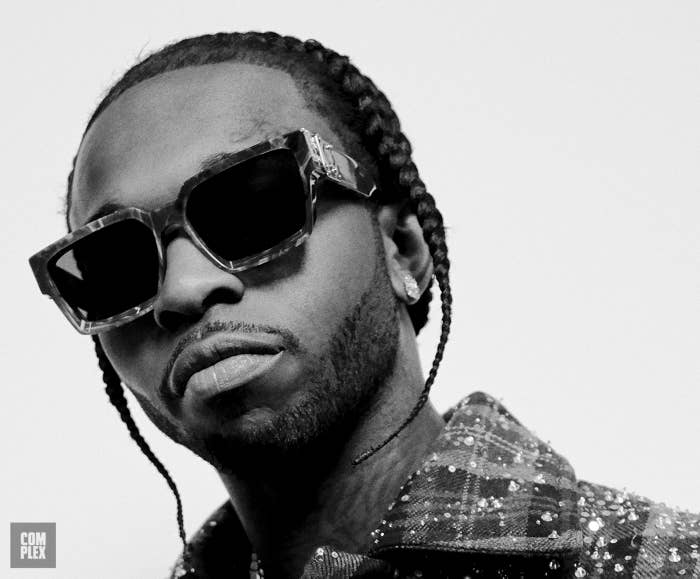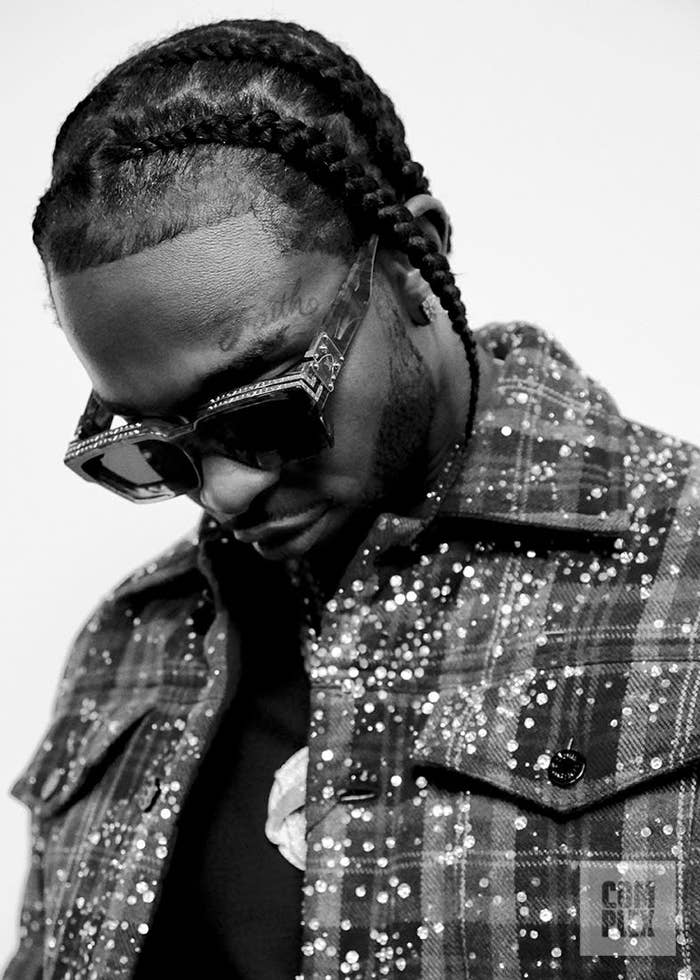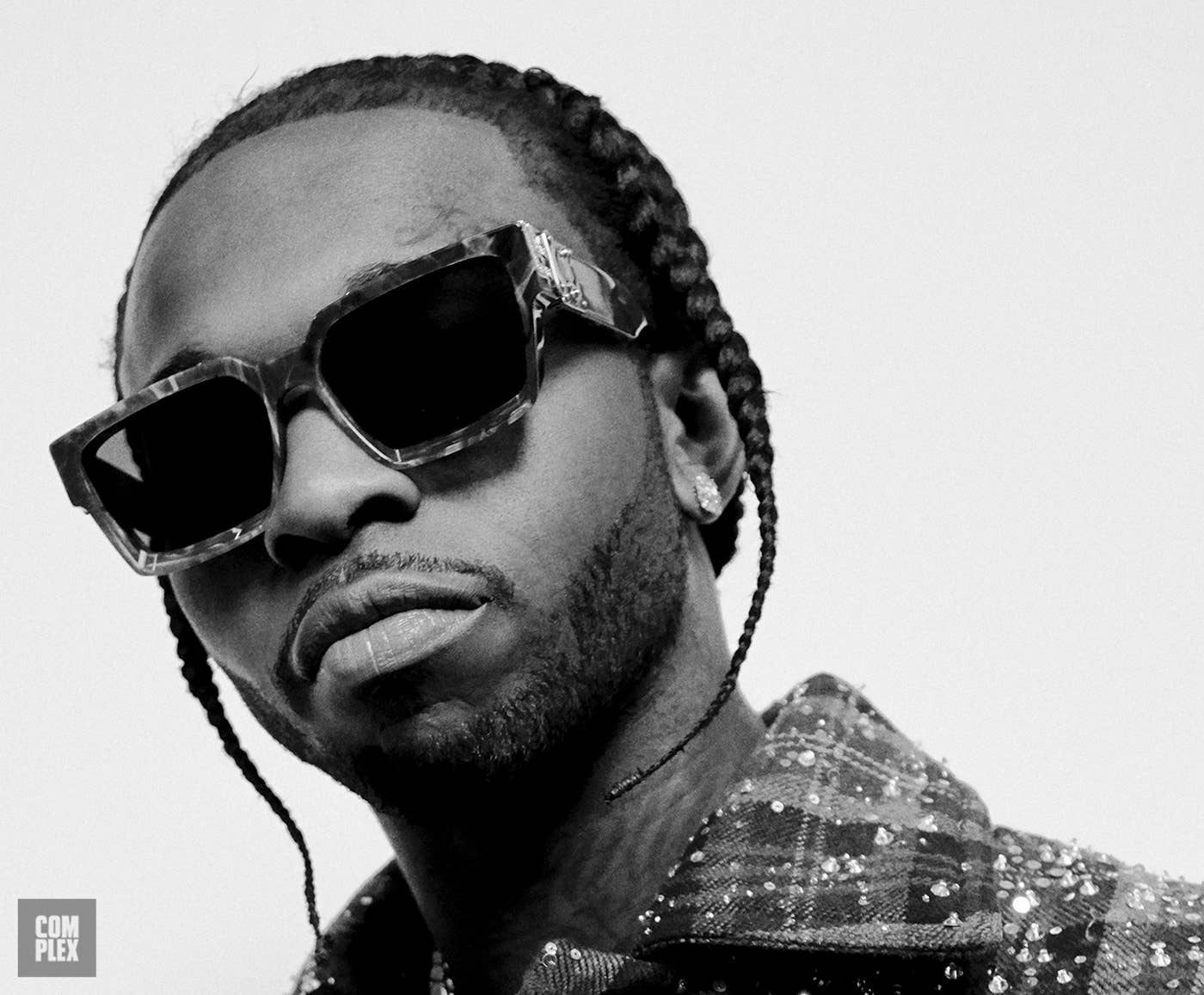
Pop Smoke, née Bashar Barakah Jackson, was born in 1999 and killed five months shy of his 21st birthday. It’s been barely two weeks since his newest project, Meet The Woo 2, was released and landed him his first top 10 debut on the Billboard 200, after he had back-to-back singles that dominated New York, “Welcome to the Party” and “Dior.” Every indicator pointed to him not just as the vanguard of Brooklyn drill, but an artist forging his way into the hip-hop mainstream, collaborating with its current stars, from Travis Scott to Nicki Minaj to Quavo, while staying true to his trademark sound. It was an exponential rise for the young man who made waves with “MPR (Money, Power, Respect)” in just December 2018, rendering the refrain “Treesha! Dirty Diana/go get a breath mint before you come get a session” ubiquitous in the streets of Southern Brooklyn.
With such a dense catalog accumulated in a brief period, it is difficult not to imagine what Pop Smoke had in store for the music world before his murder. There were fans who breathlessly anticipated the release of Flatbush rapper Bobby Shmurda from prison, hoping for a collaboration between the two dynamic artists, whose distinctive voices became just as much of an instrument as the turbulent production that supported their respective tenors. Many people highlighted the significance of Pop Smoke picking East London producer 808Melo as his longstanding collaborator, building a bridge that continues a storied tradition of organic cultural exchange within the black diaspora. He was quickly becoming the face of an emerging drill music scene in Brooklyn that was bringing a sense of excitement to New York rap that had been absent for years. As Alphonse Pierre wrote for Pitchfork, “New York was going to get it right this time, I just knew it.”
Defining the legacy of someone who was just at the nascence of their growth feels nearly impossible. It would be a disservice, however, to think about Pop Smoke as an individual and what he was to New York purely in the sense of his music, as opposed to a young man still evolving, learning, and growing into the person he wanted to be while a borough, city, and eventually an entire world looked on.
When I sat next to him for an interview late last year, one of the many things Pop Smoke told me was that while rapping wasn’t his original dream, his goal was to beat the odds in the rap game on his own merit. “I always knew I was gonna have bread,” he said. “I always was good with knowing how to talk, knowing how to hustle.” I never doubted him in that statement. We talked through alternate paths he’d charted—playing local AAU and prep school basketball, his earlier dreams of going to college—and his fealty to his family, both biological and otherwise. We discussed how his mother and sister instilled in him a sense of how to treat women and why he approached his love life with discretion but looked forward to raising daughters—a statement that, at the time, unsettled his friends, who found young girls to be punishment for less-than-exemplary behavior with their previous partners. He simply replied: “I’m with it. I hate niggas. Why would I want to bring another nigga in this world? The girl’s not the problem!”

Rapping was never his original plan, nor is it his entire story, but it was his gift to Canarsie. Pop Smoke was one of the preeminent voices of young Brooklyn, and when he chose to commit to music, his aptitude shone through as his promise in sports, public speaking, and natural charm had. He let the world in on a vibe that is nearly impossible to illustrate, much of which gets lost in translation, even with numerous Genius clips attempting to serve as interpreters, sometimes with a willful wink and smile on his part. As he says in “Hawk Em,” “I’m a gentlemen and gangster/Double G, niggas know there’s only one of me.”
Since his death was confirmed, there’s been endless speculation as to the motive, shooter, and cause via home invasion—a largely fruitless endeavor that does more harm than good, forcing a close friend to have to compose himself enough to get on social media to clear his name. Trying to force an explanation out of such an abrupt and brutal act of violence won’t provide solace for Pop Smoke’s loved ones or healing for a community that was primed to reclaim a foothold on the main stage with a homegrown hip-hop sound, as deceptively comforting as the cloak of condemnation may feel. We will likely find out the answer to this morbid saga soon enough, and perhaps we won’t. As he rapped on “MPR,” “Know some niggas that shoot you for nothin.’”
Barakah, Pop Smoke’s middle name, means blessing in Arabic. In Islam, the concept of Barakah can be transmitted through vessels—namely, people—as so ordained by God, disbursing blessings and grace to those in their proximity. We won’t get to see Bashar Jackson, father to daughters, and it’s an unspeakable horror that his mother will have to fly across the country to recover her son’s body. Nonetheless, as we’re all trying to find respite in the chaos of grief, it’s important to remember that in his short time in the spotlight, he brought a light and playful energy to the youth culture of New York, returning the voice and sound of Brooklyn to the streets where they belonged. That’s a blessing of its own, and one seen in real time, from the thousands of concertgoers across NYC taking pains to acknowledge his loss to the high school boys I saw at the Atlantic Av-Barclays Station in Brooklyn somberly listening to “Christopher Walking” on their Bluetooth speaker and the community in Canarsie gathering on his family’s block to celebrate him the best way they know how: by screaming his music into the heavens.
Just this past Sunday, Brooklyn had its first major local drill concert, called BK Drip, featuring beloved artists like Sheff G and Fivio Foreign. But it was also supposed to be Pop Smoke’s long-overdue homecoming performance, an informal coronation in his borough after a well-documented record of law enforcement denying his fans the triumphant moment he deserved, both at Rolling Loud and Powerhouse Live. When we had dinner, he had joked that “the radio knows not to say my name no more.” In his absence at BK Drip, fans chanted for him in frustration, despite ultimately understanding the suspected sceptre of the NYPD likely obstructing the appearance. They wanted their hometown royalty to bask in his latest big moment. They wanted to celebrate the man who made it out of the Flossy but still proudly carried it on his back, along with his Panamanian flag. Now, they’ll never have that chance.
While touring in London, Pop Smoke took some time to speak on his voice and what made it spread like wildfire, from Canarsie to Uptown to the rest of the world.
“I make music for that kid in the hood that’s gotta share a bedroom with, like, four kids—the young kids growing up in poverty. I make music for that kid who got beef, thinking about how, when they go to school, these people might try to kill me but I still gotta get my diploma for my mom. I make music for kids like that, who know they just gotta keep going, that there’s a better way. That’s who I really make it for. Obviously it got bigger and it’s for everybody now—people all across the world fuck with it now—but I really make it for them.”
Rest in peace to Pop Smoke, Canarsie's homegrown royalty.

